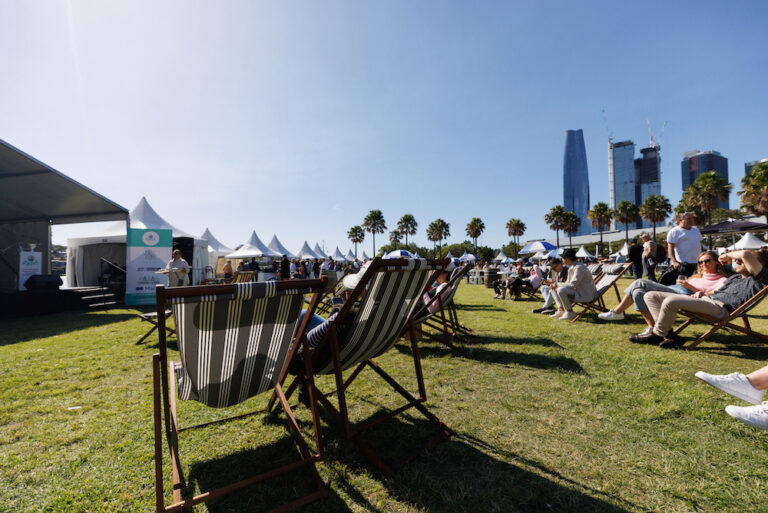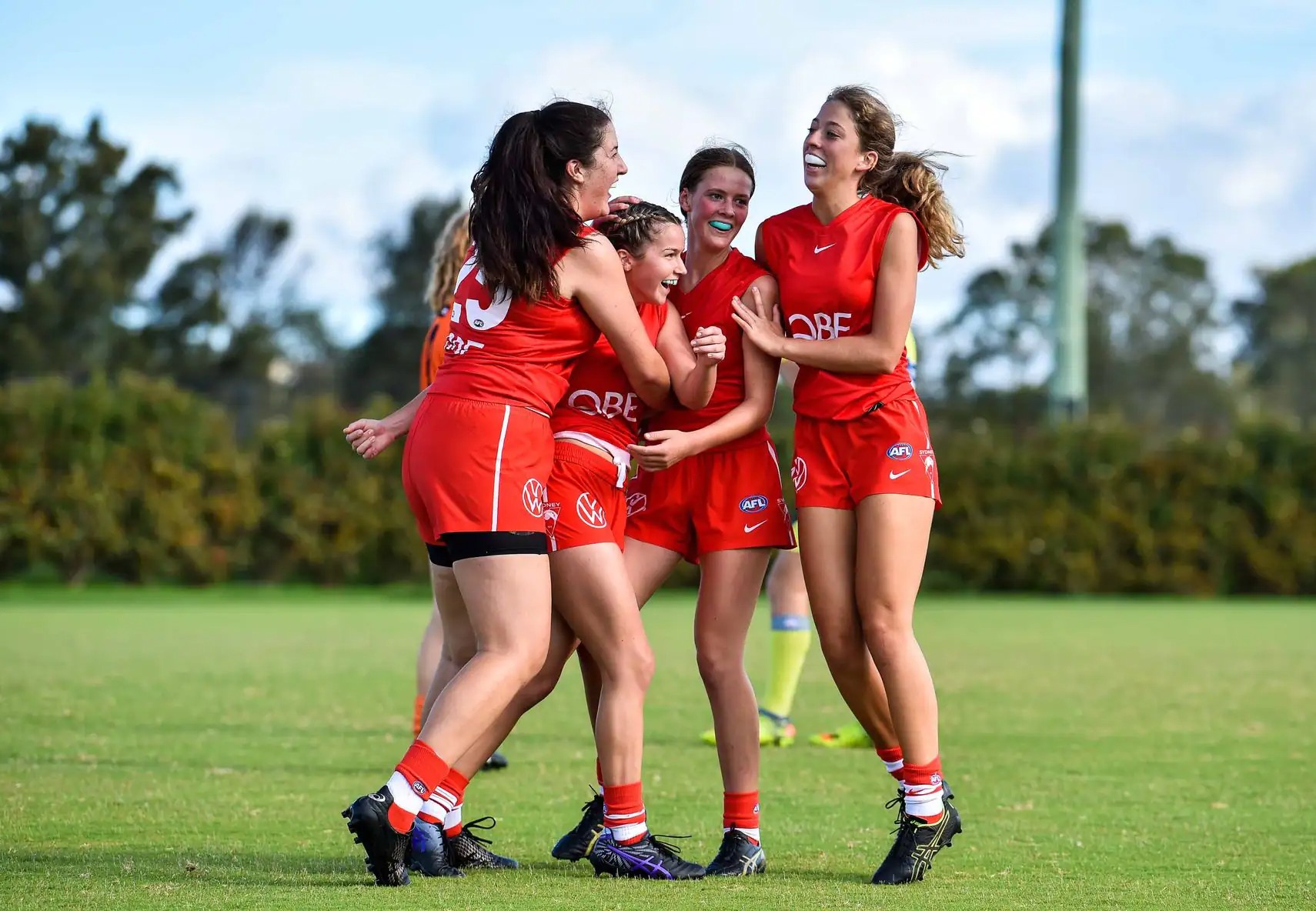By DANIEL LO SURDO
AFLW will arrive in the Inner West late next year when the Sydney Swans begin their inaugural national league campaign at Marrickville’s Henson Park.
The Swans were granted an AFLW license from the 2022/23 season along with three other clubs to bring the competition to 18 teams, matching the AFL.
State Member for Newtown Jenny Leong recognised the gravity of the decision.
“It’s fantastic to see that the Swans have secured an AFLW licence for the 2022 season, helping to complete the full expansion of the national competition,” Leong told the Independent.
“This is a historic moment for women’s sport in Australia.”
The Swans’ arrival at Henson Park will follow redevelopments preparing the venue for national competition. Upgrades include plans for female-friendly change rooms, improved media facilities as well as prospects for broadcast-standard floodlights around the ground.
Funding for the project will be shared between Inner West Council, the State Government, the AFL and the Newtown Jets, the latter calling Henson Park home since 1937 and will continue hosting their NSW Cup matches during the winter season.
The redevelopments come after Council’s $2.6 million investment in the ground’s turf and drainage to comply with professional sporting regulations.
Inner West Mayor Darcy Byrne believes the AFLW’s expansion to Marrickville will be embraced by his constituents.
“The Swans having a Women’s team playing out of Henson Park could be massive for the Inner West, and I can see them developing a real cult following,” Byrne told the Independent.
“There’s already a huge base of Swans supporters in the area, and a growing, passionate movement to break down barriers for Women’s participation in sport.”
Crucial to the Swans’ admittance into the AFLW was the cooperation from the Newtown Jets, who welcomed the new code to Henson Park.
“The Jets deserve a lot of credit for recognising that the ground needs to be used for multiple codes, they’ve been very responsible and magnanimous about working with the AFL,” Mr Byrne said.
“There’s a long history of battles between the AFL and Rugby League over access to grounds, so this is a pretty unique example where they’ve been on the same page, working together.
“To be having both the blue and white of the Jets and the red and white of the Swans located at Henson Park will give the whole ground a new lease on life, and I’m really excited by the prospect.”
Improvements to Henson Park come as part of measures to mitigate a shortage of professional-standard fields across Greater Sydney, with many sporting clubs being forced to play games during weekdays and at later times as facilities struggle to keep up with growing participation rates.
“It’s not just the people of the Inner West who are passionate about the Inner West, there’s a huge cross-section of the Rugby League and AFL supporter base who want to see [Henson Park] brought up to standards so it can host the Jets and the Swans Women’s Team.”
Access to sporting infrastructure is especially prominent in the Inner West, where the under-construction Rozelle Parklands has already prompted local associations and clubs to begin petitioning for use on the 10-hectare precinct.
While the Parklands, which are set to open in 2023, are to be managed by Council, they will be owned by Transport for NSW, whose Urban Design and Landscape Plan has already been called for amending from Mr Byrne, who believes the sporting facilities and amenities are insufficient in their current planning.
No strangers to AFL
When the first ball is bounced at Henson Park sometime in November or December of next year, it will be far from the first slice of Women’s Australian rules football that has occurred in the Inner West.
The Newtown Breakaways were the first women’s AFL club in NSW, and have called Henson home since 2002.
Ms Leong sees the AFLW’s introduction as the next extension of the Australian Rules’ influence in the Inner West.
“The Inner West has a long and proud history of nurturing women’s AFL,” Ms Leong said.
“It’s certainly apt that our local area would become the home of AFLW in the inner-city and Inner West.”
Henson Park was the backdrop for the Swans’ first Intra Club game in 2015 and has since become a regular fixture. In 2018, the ground hosted a trial game between the Men’s teams for the Swans and their crosstown rivals, the Greater Western Sydney (GWS) Giants. The hitout only lasted for three-and-a-bit quarters, after a power failure caused the floodlights, scoreboard and siren to malfunction, handing the Swans a premature 26-point victory.
Keeping it local
Concern that locals raised after the Swans were granted an AFLW licence centred on the closure of the community-oriented venue from public use.
“It’s great to see the NSW Government and the Council investing in elite women’s sporting infrastructure, but it’s important that amateur sport is also properly supported and that Henson Park remains accessible to the public as one of the precious green spaces in the inner-city,” Leong said.
Each week, Henson Park accommodates dog walkers, community sports teams or residents seeking a place to relax in the sun. It’s an aspect of the ground that Mr Byrne believes will be upheld into the future.
“Henson Park is a historic place but it also has great contemporary value, not just as a sports ground but a place of recreation for the whole community … it’s fantastic the way it’s being used,” Mr Byrne said.
“We’re able to uphold that history of Henson Park and its heritage while also creating a new element of its future, it’ll mean that that passion that people hold … can be maintained for many years into the future.”
Creating opportunity
While the decision brings another professional sports team to the Inner West, the arrival of the Swans in the AFLW will also create another pathway for women to progress to the top ranks of the national game.
Swans Chief Executive Tom Harley viewed it with pride.
“It’s a really historic moment for the club, we’re coming up to almost 150 years, and throughout that 150-year history we’ve only had a Men’s team,” Mr Harley said.
“Since the introduction of AFLW [2017] we’ve been working feverishly to get ourselves in a position, and in the last year or so it’s really felt like we haven’t been whole without [a team].”
The Sydney Swans have run their Youth Academy since 2010, and currently have 800 players aged 11-19 in nine hubs across the state. This year, the Academy welcomed girls to its ranks, and now trains 300 players each week through age-appropriate, professional sessions.
Mr Harley recognised the importance that an AFLW team will have for his Academy players.
“What we’ve seen in the past couple of years as we’ve prepared for entry to the AFLW is an explosion in participation in Sydney – it’s the fastest-growing market in the country for youth girl’s football,” Mr Harley said.
“We’ve seen not only great enthusiasm [in our Academy], but some good talent to come through.”
Ms Leong, the Women’s Rights spokesperson for the NSW Greens, echoed the sentiments of Mr Harley.
“We are committed to ensuring support and encouragement for women to be able to step up as leaders, champions and representatives – whether that be in sport or other areas of community life.”
The decision on the next stages of redevelopment for Henson Park is expected over the coming months. Minutes from a Council Meeting last month found that amenities at the ground are no longer fit for purpose and below community standards.
Council’s turf and drainage renewal earlier this year included the installation of a stormwater harvesting and treatment system to reduce the use of town water for irrigation, a new field drainage system, including recycling of water and rectifying the long-term sinkhole in the centre of the field.


